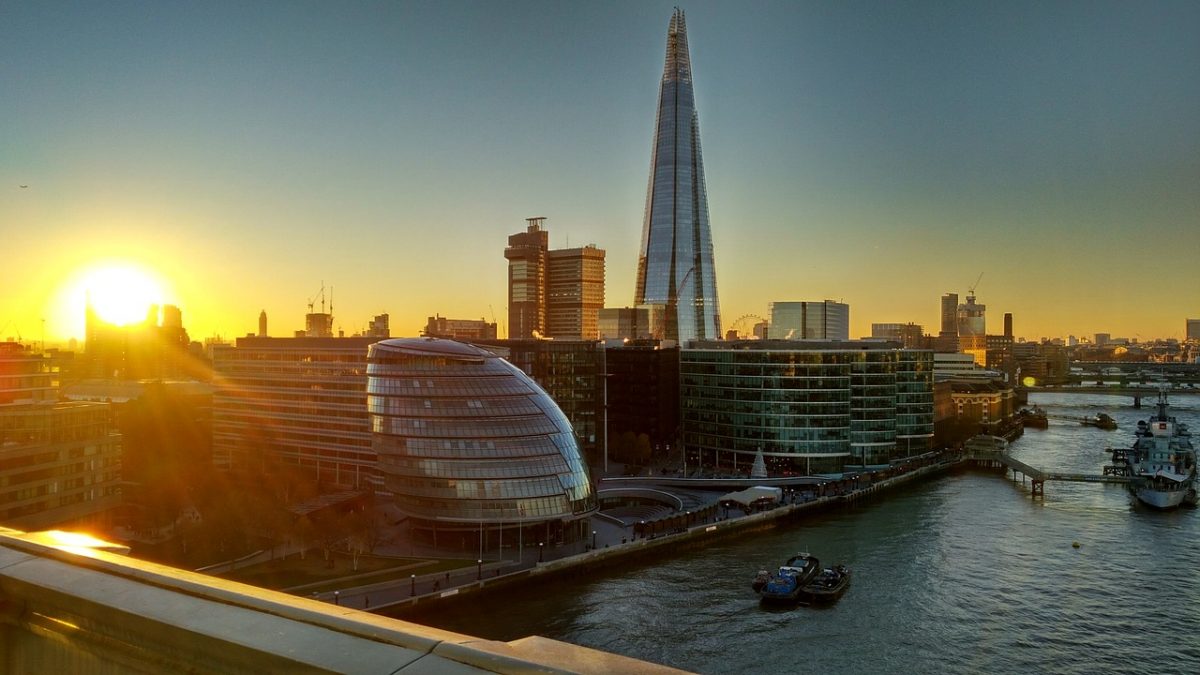Doing business in the UK

Protectionism by the Trump Administration
June 26, 2017
Ivory Coast – The port of entry to West Africa
April 26, 2018
UK is the abbreviation of “United Kingdom” or most officially the “United Kingdom of Great Britain and Northern Ireland”. The UK is composed by four countries: England, Scotland, Wales and Northern Ireland.
There are two official languages in the UK, English and Welsh. However, over 90% of the population speak English as main language. Although the majority, especially the younger generation, will have had some language training, not all of them feel comfortable making mistakes in front of others and therefore pretend that they don’t speak other languages.
Generally, it is probably impossible to develop a thorough understanding of British culture during a short business trip, you should take a long-term approach, respect their values of privacy and politeness, and look for shared interests. The Brits view themselves as civilized, well-mannered and well educated. They are generally an understated people, detached, often hard to read and very class-conscious.
Business structure
The British often come across as quite reserved and distant at first, and it can take some time to get down to the elements of business proceedings. Time is an important factor, although reaching a decision can be a slow and laborious process involving many layers of people and bureaucracy.
Networking and relationship building are often key to long-term business success. Most British and business people look for long-term relationships with people they do business with and will be cautious if you appear to be going after a quick deal.
As a general observation, people tend to be more open and friendly outside of London and in the North in particular; in fact, there is still a north-south division in terms of cultural openness in the UK.
A specific difficulty is the verbal communication, as the British have a certain penchant for understatement. This can show itself in seeming self-deprecation. “A little problem’” might constitute “a huge stumbling block” for a British counterpart.
Meetings
The fundamental principles of business culture in United Kingdom are courtesy, politeness, discipline and punctuality. It is good practice to make meeting appointments at least a few days in advance. The most suitable time to arrange a business meeting is probably about 10am., especially in the early stages of negotiations. It is very unlikely that a first meeting would take place over a meal.
Whilst many managers do work longer than the official 9am to 5.30pm office schedule, it is rare for meetings to be held outside this range of time. In general, the British value time-keeping for business arrangements, as they are very time conscious. It is considered very impolite to arrive late for a business meeting. If your delay is inevitable, excuse yourself with an apology.
In British business, hierarchies are becoming flatter, which define fewer distinctions between roles and departments. Nevertheless, it is still advisable to send a senior manager to discuss business issues in the UK rather than a junior employee. Sending senior individuals will provide more credibility and a sense of authority. However, these attitudes are gradually changing.
People in Britain usually address each other informally in day-to-day communications using their first names.
Business relations
Don’t rush, never dictate, and don’t make presumptions. The Brits like facts. They are also quite formal. Small talk is okay (weather, your trip to UK, etc.), but don’t be too casual. The British are generally not too familiar with someone they’ve just met.
Negotiations are usually open and flexible and the British will favour a collaborative win/win approach to agreements. To create good business relations, you should follow the lead of the person you are talking you, asking permission if you’d like to talk about potentially sensitive subjects and not being overly negative or sarcastic.
In the UK, an agreement will not normally be final and complete until a written contract has been formally signed and witnessed. It is thus essential to create an atmosphere of trust, reliability and fairness, as those are values the British appreciate.
British business professionals often approach their work in an emotionless way. They will tend to look for objective facts and solid evidence, similarly, any facial expressions tend to be kept to a minimum. Public displays of emotion are still widely regarded as unprofessional.
A very important point is that people in the UK do not like to be embarrassed. In many cases, they simply fear saying something that the other party could find offensive or resulting in some misunderstanding.
Politeness phrases are constantly used to avoid offending the other party. It is considered extremely rude to directly disagree with someone. If you are too direct, you risk being perceived as overly arrogant and aggressive, which can prevent a good business relationship from developing. Indirectness is a key aspect of communication in British business culture. It is therefore essential to read between the lines. For example, if the answer is “Maybe… that’s an interesting factor,” the other party is probably not too taken by your idea.
Therefore, it might sometimes be challenging to understand how situations are perceived by your British business partners. Keep your voice down when speaking and try to avoid making large, exuberant hand gestures.
The people of the UK value their privacy highly. Although they may appear to be open in public, they don’t like interference with my personal space. If you really want to adapt to their culture and make some valuable connections, you will need patience and be aware that creating such trust may take longer than expected.
Greetings
A firm handshake is the typical greeting for a new introduction and should not be expected at further meetings, expect simply to be greeted verbally.
There are no issues over gender in the UK. Maintain eye contact during the greeting but avoid anything prolonged. A kiss is not an acceptable greeting.
When meeting someone new, shake their hand and say, “Nice to meet you” or the more formal “How do you do?”
When meeting your business partners for the first time, it is more appropriate to use their surnames following the title for example: Mr (for men), Mrs (for women) and Miss or Ms (for unmarried women).
In British business culture, there are no formal ritual surrounding the exchange of business cards. Academic titles are not generally used, if you use yours, it may be taken as a sign of arrogance.
Dressing codes
When it comes to business dress codes, classical conservative is the norm and dark colours are predominant. It is common for women to wear either trousers or a skirt in an office environment. Some British firms have introduced the concept of ‘dress-down’ Friday with its code of ‘smart casual’ but it is not universal.
British humour and its use in Business relations
Humour is also an important tool to master in British business culture. It is often used to lighten the mood and diffuse tension. The British especially like humour that is dry and funny. It is important to be able to laugh at oneself. You should know that the use of humour in a business setting does not mean that the situation is not being taken seriously.
Last but not least…
- Although the United Kingdom is a generally open culture, there are some behaviours and topics that are best to be avoided, particularly at the beginning of a relationship, such as;
- Greeting strangers with a kiss or with a backslapping or hug
- Asking personal or intimate questions
- Unnecessarily long eye contact is also considered an invasion of privacy
- Politics and Monarchy matters
- When sending a business email, it is important to use British English, as opposed to American or US English.
- Humour and understatements are often used in British business communication. It is therefore important to read between the lines.
- British would not usually invite partners to their home. Britain friendship comes through sharing activities like going to the pub, etc. It is in fact a big part of British culture. It is considered as an activity to build relationships.
- When planning a business trip to the United Kingdom, it is advisable to avoid the months of July and August as this is when many British families take their annual holidays.
Régis Glaude, International Business Development at How2Go Spain




